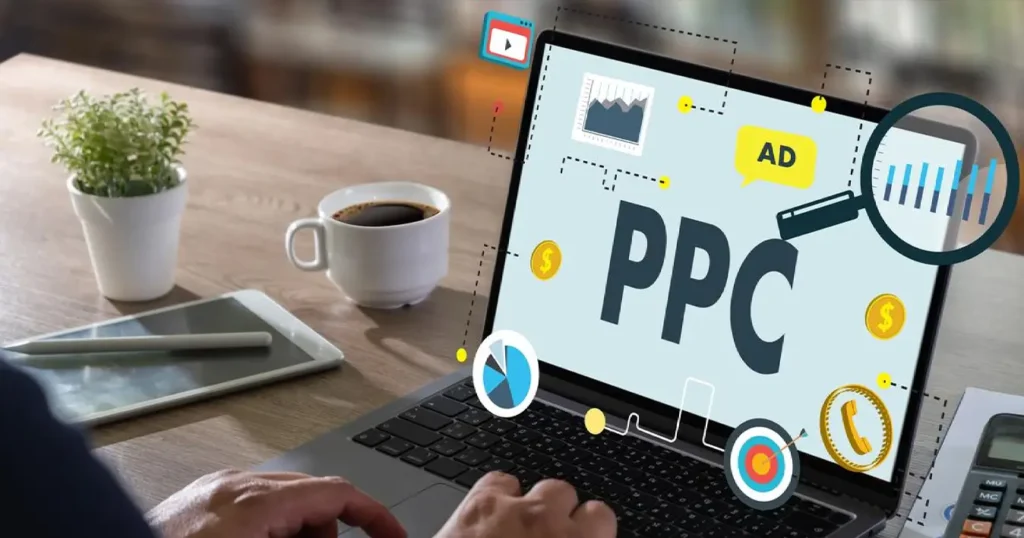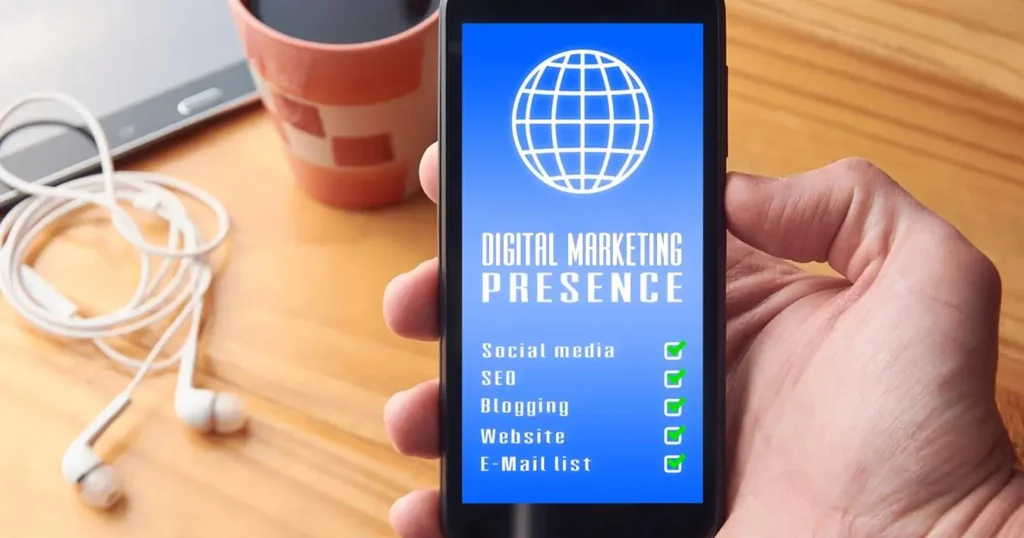Ever scratched your head over the term ‘PPC’? Or perhaps you’ve glimpsed ‘Google AdWords’ at the corner of a webpage?
For tech support companies, these aren’t just fancy buzzwords. They are powerful tools that can skyrocket their online presence.
But how exactly does PPC tie into tech support, and why should you care?
Dive in as we unravel this digital mystery.

Why Tech Support Companies Need PPC?
Consider the following scenario: You are shipwrecked on an island (the wide internet) and need a flare pistol (visibility).
PPC, in particular Google AdWords, can help with that. It’s your direct message to the online world, ensuring that those in need see your tech support offerings.
Have you ever found those “pop-up calls for tech support” annoying? Maybe it’s annoying for us, but it’s a focused approach for IT businesses to find new clients.
Consider this. Isn’t it wonderful how accurately IT companies can present their services to those looking for them? And who is the mastermind behind such methods?
For tech assistance, of course, a PPC specialist!

Factors to Consider When Choosing a PPC Service For Tech Support:
The following are some factors to consider when Choosing a PPC Service For Tech Support.
- Understanding of The Tech Industry
- Platform Features And Capabilities
- Cost And Budget Flexibility
- Transparent Reporting
- User-Friendly Interface
- Customer Support
- Compliance And Security
- Integration Capabilities
- Client Reviews And Testimonials
Pay-per-click advertising, or PPC, has revolutionized the field of digital marketing. The suitable PPC solution may be a game-changer for tech support organizations where customer trust is vital and competition can be tough.
But how can you choose wisely when so many features and alternatives exist?
Here is a roadmap for helping IT companies make the perfect choice.
- Understanding of The Tech Industry
Tech support is subtle, while most PPC providers provide basic advertising solutions. The platform you select should know the IT sector or, at the absolute least, its expertise.
This ensures that your advertising initiatives speak to and solve the problems of your target market.
- Platform Features And Capabilities
Different PPC platforms offer varying features. Features like keyword targeting, geo-targeting, and device-specific campaigns can be crucial for tech support businesses.
Additionally, AI-driven insights and automation can help optimize the campaigns for better results.
- Cost And Budget Flexibility
Every tech support business has its budget constraints. While PPC can offer excellent ROI, it’s essential to understand the cost structure of the service.
Does the platform offer flexible spending limits? Are there any hidden charges?
It’s vital to ensure the platform aligns with your budgetary needs.
- Transparent Reporting
In PPC marketing, transparency is crucial. Your chosen provider should offer in-depth reporting and analytics that provide data regarding clicks, impressions, conversions, and other metrics.
This not only assists in calculating ROI but also in optimizing campaigns for successful results.
- User-Friendly Interface
In the technology industry, time is of the essence. It’s pointless if your staff spends hours attempting to use a challenging PPC platform.
Save time and effort by using a user-friendly interface that simplifies campaign setup, modification, and tracking.
- Customer Support
As tech companies offer support to their clients, they also deserve top-notch support from their PPC service providers.
Look for platforms that offer prompt customer service, ideally 24/7, and have a reputation for resolving issues efficiently.
- Compliance And Security
Compliance and security must come first when selecting a PPC provider because tech support data is sensitive. Make sure the platform respects industry norms and rules and places a high priority on data security.
- Integration Capabilities
Processes may be streamlined, and improved insights provided by a PPC platform that can effortlessly interface with other technologies, including CRM systems, analytics tools, and marketing platforms.
Integration capabilities can lessen the pain of switching between several apps and save time.
- Client Reviews And Testimonials
Finally, don’t just take the PPC service’s word for it. Research client reviews, testimonials, and case studies. This can provide a clearer picture of the platform’s efficacy and whether it fits your tech support business correctly.
Choosing a PPC service for your tech support company is not a decision to be taken lightly. By considering the above factors and conducting thorough research, you can ensure your investment yields fruitful results and propels your business to greater heights.

Top PPC Services For Tech Support
While several services are available, the cream always rises to the top. But before you dive into the ocean of options, ask yourself: “What’s my budget?” and “What features do I truly need?”
Here’s a sneak peek:
Service A:
- The big player is known for its robust Google AdWords campaigns.
- Features? They’ve got them all and then some. But it comes at a price.
- Top-notch PPC customer service? Absolutely. But again, be ready to pay a premium.
Service B:
- They are the underdog, but don’t underestimate them.
- Their PPC experts for tech support have rave reviews.
- While they might not have all the bells and whistles, their targeted approach for pop-up calls for tech support is unparalleled.
Service C:
- A balanced blend, offering the best of both worlds.
- It is efficient, transparent, and won’t burn a hole in your pocket.
- Need tweaks or changes? Their PPC customer service is just a call away.
Tips For a Successful Tech Support PPC Campaign
Okay, you now have a service in place. Next, what?
A piece of advice: think carefully before jumping in without a plan. Start by doing keyword research. Remember that relevancy is more important than simply volume. Do you have an enticing ad copy?
If you responded with “Uh, what?” it’s time to review. The reader must be interested. Ever clicked on an advertisement only to discover the landing page was completely irrelevant? Be not that person. Keep an eye on things and make adjustments and tweaks as necessary.

Types of PPC Services For Tech Support
Following are some types of PPC services for tech support.
- Search Advertising
- Display Advertising
- Social Media Advertising
- Remarketing/Retargeting
- Google Shopping Ads
- Video Advertising
- Local Service Ads
In today’s digitally-driven world, businesses strive to reach potential clients quickly and effectively. One of the most promising tools for achieving this is Pay-Per-Click (PPC) advertising.
Especially for tech support companies, PPC campaigns can help target the right audience precisely and in real time.
Let’s delve into the various PPC services best suited for tech support businesses.
- Search Advertising
Overview: Search advertising is one of the most popular forms of PPC. Advertisers bid to display brief advertisements, service offerings, or product listings within the search engine results.
Relevance for Tech Support: When someone searches for queries like “Windows troubleshooting” or “WiFi setup help,” a tech support company’s ad might appear at the top of the results, thus driving highly targeted traffic.
- Display Advertising
Overview: Display ads appear on third-party websites, often in banners, sidebars, or interstitial ads. They are visual-driven and can contain multimedia elements.
Relevance for Tech Support: Tech companies can visually demonstrate their services or use attention-grabbing images to convey the ease and effectiveness of their solutions.
- Social Media Advertising
Overview: Platforms like Facebook, LinkedIn, Twitter, and Instagram offer opportunities for businesses to place ads targeting specific demographics.
Relevance for Tech Support: By targeting ads based on user behaviour and interests, tech support companies can reach potential clients who might have shown interest in tech-related content or troubleshooting tools.
- Remarketing/Retargeting
Overview: Remarketing involves showing ads to users who have previously visited your website but did not take a desired action (like signing up or purchasing).
Relevance for Tech Support: If a user browsed a tech support site but didn’t sign up, retargeting ads can remind them of the services and nudge them to return and decide.
- Google Shopping Ads
Overview: These are specific for e-commerce businesses, displaying products directly within the search engine results.
Relevance for Tech Support: While more relevant for tech product companies, tech support businesses selling software or hardware tools can leverage shopping ads to showcase their offerings.
- Video Advertising
Overview: Platforms like YouTube allow businesses to display short ads before or during other video content.
Relevance for Tech Support: Video ads can be an effective way for tech support businesses to demonstrate their expertise in real-time, offer quick tips, or showcase customer testimonials.
- Local Service Ads
Overview: Geared toward local businesses, these ads focus on connecting businesses with their local audience.
Relevance for Tech Support: For tech support companies that provide on-site services, local service ads can be invaluable in targeting clients within a specific geographical radius.

Elevate Your Digital Presence With ByteTeck!
From utilizing the power of PPC to implementing cutting-edge digital marketing strategies, Digital ByteTeck is your one-stop solution for unmatched online visibility.
Dive into the world of possibilities with our comprehensive digital marketing suite.
Discover ByteTeck Services Now!
Our Takeaway
Wow, what a journey it was. Wasn’t it?
However, the world of PPC is as difficult as it is fascinating, especially for tech support. One thing is certain: mastering this field may significantly boost your tech support business.
This is true regardless of the appeal of Google AdWords, the clever pop-up calls for tech support, or the search for the ideal PPC specialist for tech support.
Still unsure whether to engage in PPC? Never forget that creating the perfect splash is everything in the huge digital ocean. Prepared to jump in?
PPC, or Pay-Per-Click, services generally include keyword research, ad creation, landing page optimization, bid management, campaign monitoring, reporting, and optimization. Some agencies also offer retargeting, display, and shopping ads as part of their PPC services.
In technology, PPC (Pay-Per-Click) is a digital marketing strategy where advertisers pay a fee each time their advertisement is clicked. Essentially, it’s buying site visits rather than organically earning them.
Running Google ads for tech support involves several steps:
Start by setting up a Google Ads account.
Conduct keyword research to identify what potential customers might search for.
Create compelling ad copies that highlight your tech support services.
Set a budget and choose your bid strategy.
Design a relevant landing page that matches the ad’s promise.
Monitor and optimize your ads for better performance.
Note: Google has strict policies for tech support ads, so ensure compliance to avoid ad disapprovals or bans.
In a call center context, PPC often relates to “Pay-Per-Call,” where advertisers pay a fee for each call generated through their ads. It’s especially prevalent in industries like tech support, where immediate customer assistance is required.
The five key aspects of PPC are:
Keyword Research: Identifying and targeting the right search terms.
Ad Creation: Crafting compelling ad copies that resonate with potential customers.
Landing Page Optimization: Ensuring the user’s post-click experience is seamless and encourages conversions.
Bid Management: Setting and adjusting the amount you will pay for a click.
Campaign Monitoring & Optimization: Regularly reviewing performance metrics and tweaking the campaign for better results.
A comprehensive PPC strategy should include:
Goal Setting: Define what you want to achieve: brand awareness, lead generation, or sales.
Market Research: Understand your target audience and competition.
Budget Allocation: Decide how much you’re willing to spend and how to distribute it across campaigns.
Keyword Selection: Identify the right search terms to target.
Ad Creation and Testing: Design ads and test different variations.
Landing Page Design: Ensure relevancy and optimize for conversions.
Campaign Tracking & Analysis: Use tools like Google Analytics to measure results and ROI.
Continuous Optimization: Regularly refine your campaigns based on performance data.